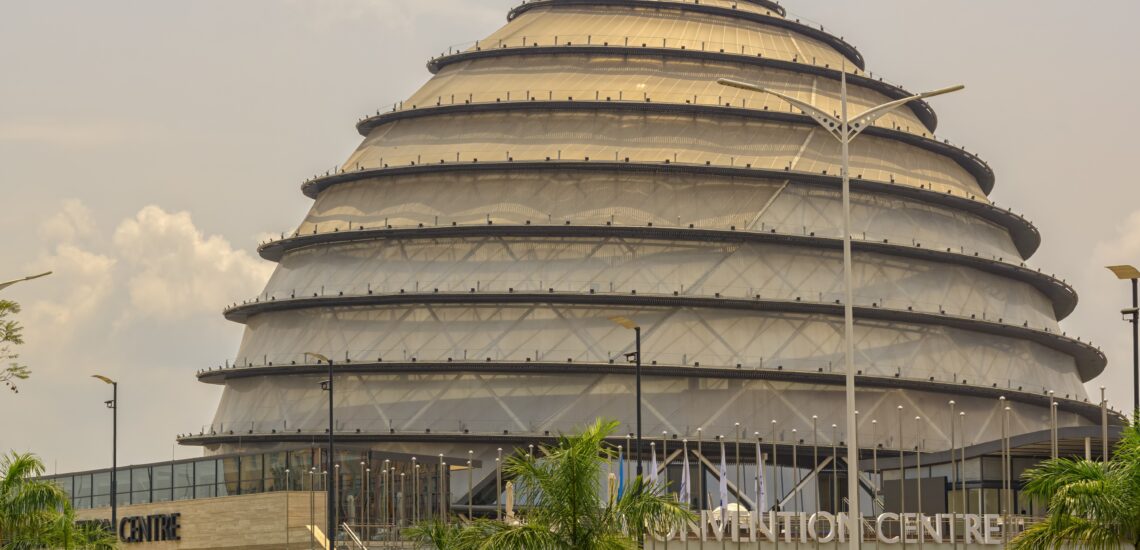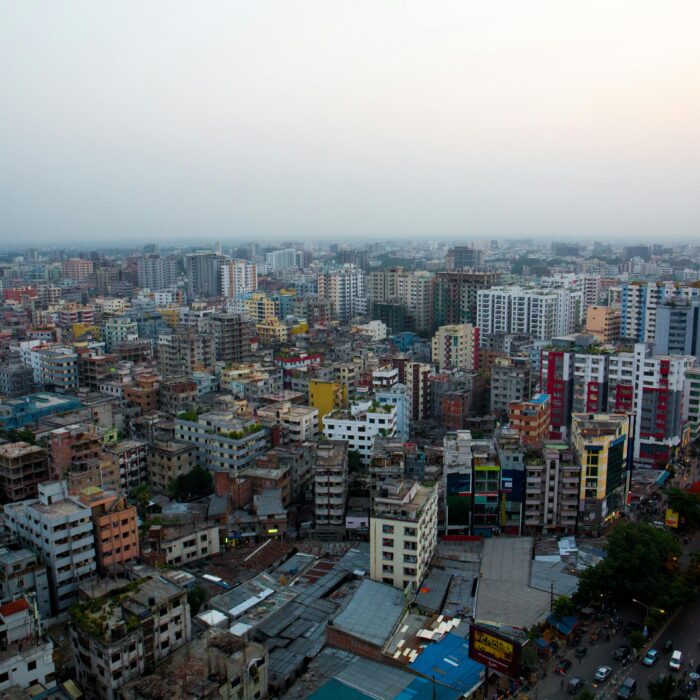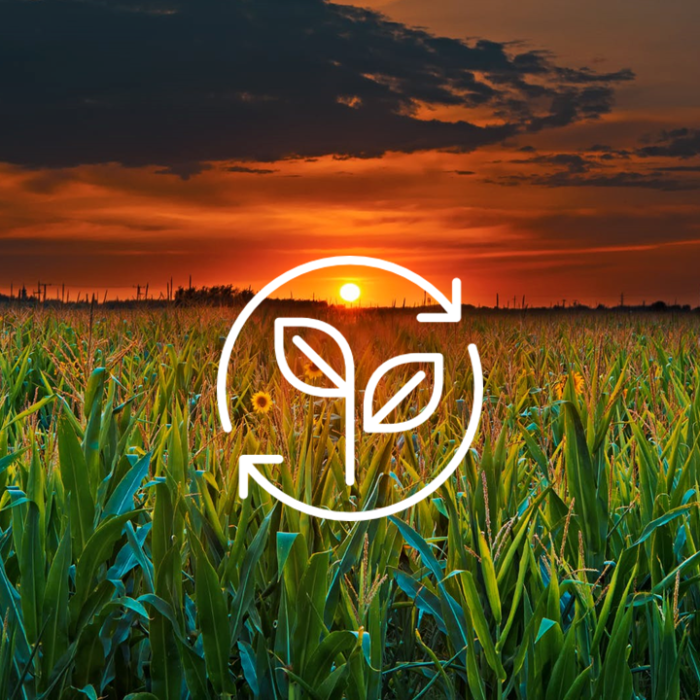Quick facts about Rwanda:
- Population: Approximately 14 million people.
- Capital: Kigali.
- Official Languages: Kinyarwanda, French, and English.
- Currency: Rwandan Franc (RWF).
- Government: Unitary presidential republic.
- Major Religion: Christianity (predominantly Roman Catholic and Protestant), with a smaller Muslim minority.
- Geography: Landlocked country in East Africa, bordered by Uganda to the north, Tanzania to the east, Burundi to the south, and the Democratic Republic of the Congo to the west. Known for its mountainous terrain and often referred to as the “Land of a Thousand Hills.”
Fact 1: Rwanda is the most densely populated country in Africa
Rwanda is one of the most densely populated countries in Africa, with around 525 people per square kilometer and a total population of about 14 million. The high density is due to its small land area of approximately 26,000 square kilometers, high fertility rates, and significant urbanization. The country’s mountainous terrain and pressure on land for agriculture also contribute to the high population density.
Future projections indicate that Rwanda’s population could reach around 20 million by 2050. The government is addressing the challenges of high density through investments in infrastructure, health, and education to manage growth and improve living conditions.
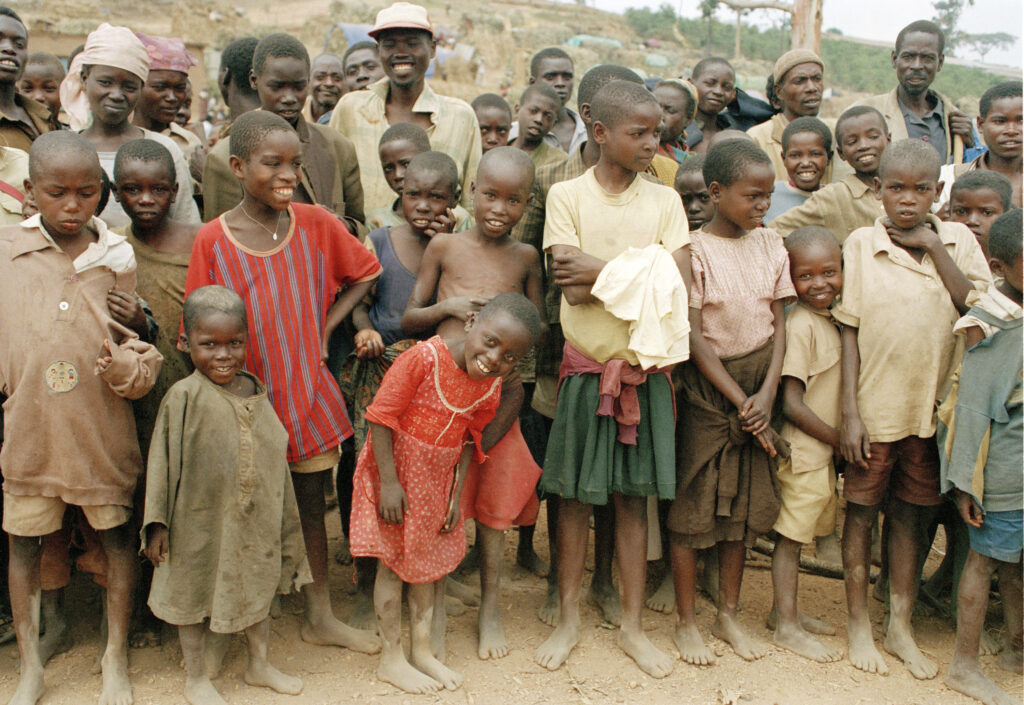
Fact 2: Rwanda, infamous for an act of genocide in the last century
Rwanda is unfortunately known for the genocide that occurred in 1994. The Rwandan Genocide was a mass slaughter of the Tutsi ethnic minority by members of the Hutu majority government. Over a period of approximately 100 days, from April to July 1994, an estimated 800,000 people were killed.
Background and Impact:
- Ethnic Tensions: The genocide was rooted in long-standing ethnic tensions between the Hutu and Tutsi groups, exacerbated by colonial policies and political manipulation.
- Triggering Events: The assassination of President Juvénal Habyarimana, a Hutu, in April 1994 was a catalyst for the violence.
- International Response: The international community faced criticism for its slow and inadequate response to the genocide.
- Aftermath: The genocide had a profound impact on Rwanda, leading to massive loss of life, widespread trauma, and destruction. The country has since made significant efforts towards reconciliation, justice, and rebuilding.
The Rwandan government has focused on promoting national unity and preventing future conflicts through various means, including the establishment of the Gacaca court system and efforts in economic development and social cohesion.
Fact 3: Rwanda is home to about half of the world’s mountain gorillas
Rwanda is indeed home to approximately half of the world’s mountain gorillas, which are found mainly in the Virunga Mountains. These critically endangered animals inhabit the lush forests of Volcanoes National Park, a key area for their conservation.
Mountain gorillas are a focal point of Rwanda’s conservation efforts. The country has implemented extensive measures to protect these animals, including anti-poaching initiatives and habitat preservation. These efforts have been supported by both the Rwandan government and international organizations, contributing significantly to the increase in the mountain gorilla population over recent decades.
Tourism plays a vital role in these conservation efforts. Gorilla trekking has become a major eco-tourism activity in Rwanda, attracting visitors from around the world. This form of tourism not only provides essential funding for conservation projects but also brings economic benefits to local communities, creating a strong incentive to protect the gorillas and their habitat.
Note: If you plan to travel independently into the country, check if you need an International Driving Permit in Rwanda to rent and drive a car.
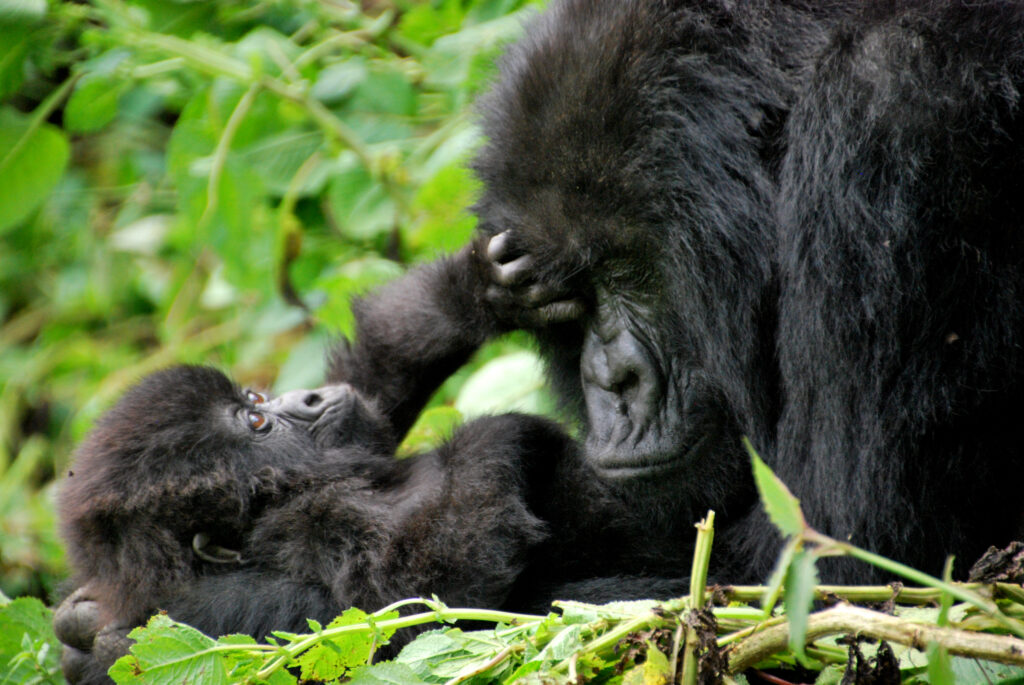
Fact 4: Plastic bags have been banned in Rwanda
Rwanda has implemented a significant ban on plastic bags. The country has been a pioneer in environmental policy by enacting one of the strictest plastic bag bans in the world. This ban, which was introduced in 2008 and reinforced over the years, prohibits the production, importation, use, and sale of plastic bags.
Rwanda’s decision to ban plastic bags was driven by concerns over environmental pollution and the negative impact of plastic waste on the country’s landscapes and wildlife. The ban has been largely successful in reducing plastic waste and improving environmental conditions.
Enforcement of the ban is rigorous, with measures in place to ensure compliance. Rwanda’s approach has set a model for other countries and demonstrates the effectiveness of strong environmental policies in addressing pollution and promoting sustainability.
Fact 5: Rwanda is a mountainous country
It is often referred to as “The Land of a Thousand Hills” due to its hilly terrain and numerous mountains. The country’s landscape is characterized by a series of highland plateaus, rolling hills, and volcanic mountains, particularly in the northwest region.
The Virunga Mountains, which include some of the highest peaks in Rwanda, are a notable feature. These mountains are part of the larger Albertine Rift mountain range. Rwanda’s elevation varies widely, with the highest peak, Mount Karisimbi, reaching about 4,507 meters (14,787 feet) above sea level.
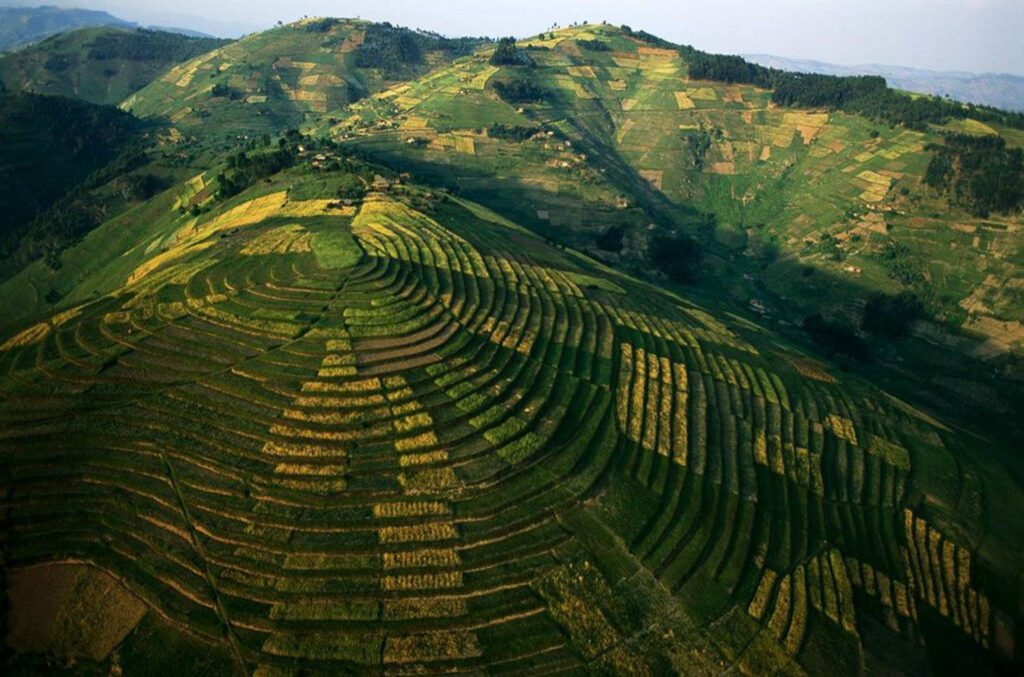
Fact 6: Rwanda produces some of the most delicious coffees in the world
Rwanda is known for producing some of the world’s finest coffees. The country’s coffee is highly regarded for its quality, distinctive flavors, and unique profiles. Rwanda’s coffee industry benefits from the country’s high-altitude regions and volcanic soil, which contribute to the rich and complex flavors of Rwandan coffee.
The coffee-growing regions in Rwanda are primarily located in the western and northern parts of the country, where the altitude and climate conditions are ideal for coffee cultivation. The country’s focus on improving coffee processing methods and quality control has further enhanced the reputation of its coffee on the global market.
Rwandan coffee is often described as having a balanced acidity, medium body, and notes of fruit, floral, and sometimes chocolate.
Fact 7: In Rwanda, there is mandatory community service every month
In Rwanda, there is a form of mandatory community service known as Umuganda. This practice is a significant aspect of Rwandan life and is designed to promote community involvement and national development.
Umuganda takes place on the last Saturday of each month, where citizens are required to participate in community service activities. These activities can include various tasks such as road maintenance, cleaning public spaces, planting trees, and other community improvement projects.
The concept of Umuganda was revived and formalized after the 1994 genocide as a way to foster national unity and promote collective responsibility. Participation in Umuganda is seen as a civic duty and a way to contribute to the development and well-being of the community. It also serves as an opportunity for Rwandans to work together towards common goals and build a sense of solidarity and social cohesion.
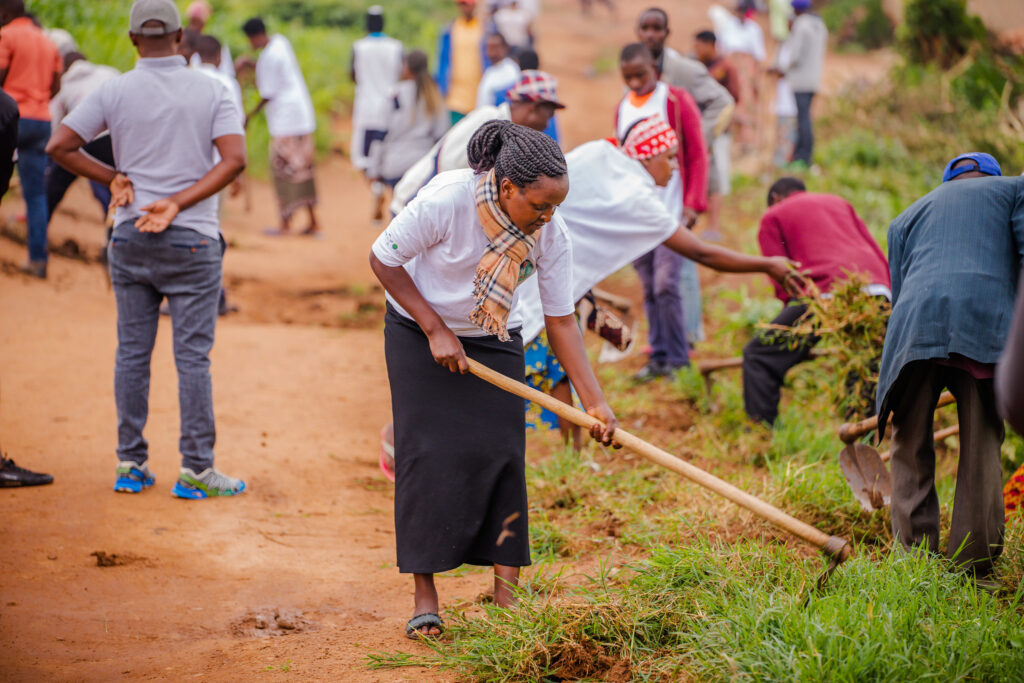
Fact 8: Women have the highest percentage of women in Rwanda’s parliament
Rwanda has the highest percentage of women in its parliament globally. As of recent data, women hold about 61% of the seats in Rwanda’s lower house of parliament, the Chamber of Deputies. This remarkable representation reflects the country’s strong commitment to gender equality and women’s empowerment.
Rwanda’s significant female representation in parliament is the result of deliberate policies and efforts to promote gender parity. The country has implemented measures such as constitutional quotas and affirmative action to ensure that women are well-represented in political decision-making roles.
Fact 9: Paintings by local artists are ubiquitous in Rwanda
In Rwanda, paintings by local artists are quite prominent and play a significant role in the country’s cultural and artistic landscape. Rwandan art is celebrated for its vibrant colors, intricate designs, and unique expressions that reflect the country’s heritage and contemporary experiences.
Local artists often draw inspiration from traditional Rwandan motifs, daily life, and natural landscapes, incorporating these elements into their works. Paintings can be found in various public spaces, including government buildings, hotels, and galleries, as well as in local markets and shops.
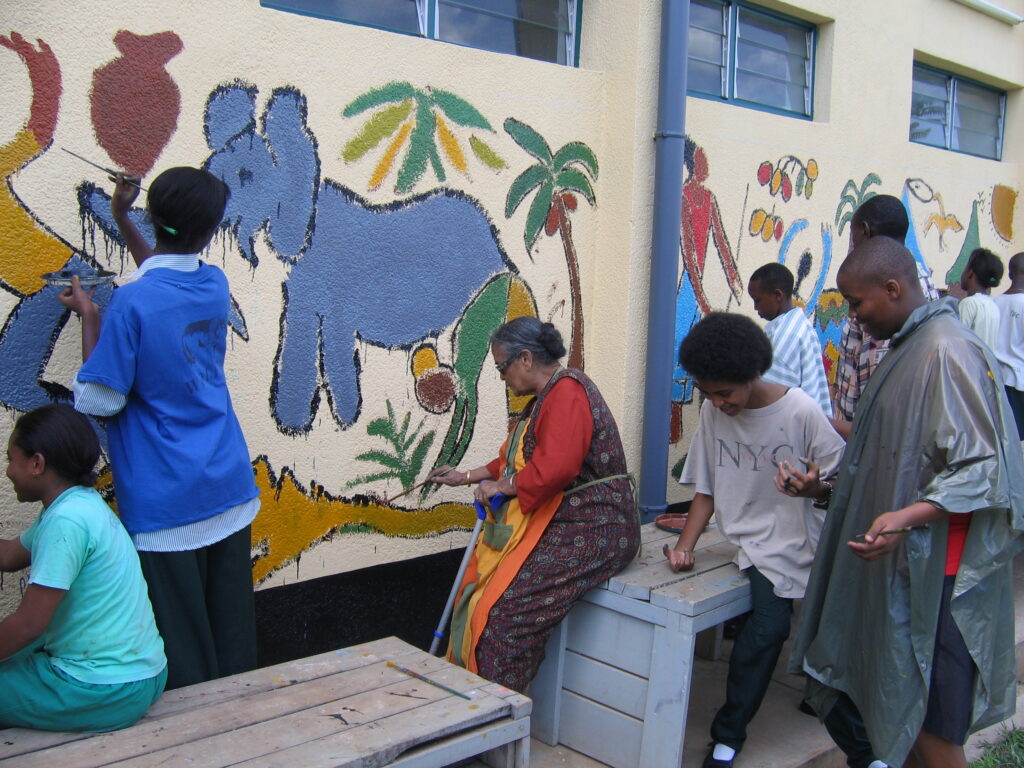
Fact 10: Rwanda has placed a premium on cleanliness and ecology
The country’s commitment to environmental conservation is evident in several key areas:
Cleanliness and Environmental Initiatives: Rwanda is known for its stringent environmental policies, including a national ban on plastic bags. The government promotes cleanliness and waste management through various programs and community initiatives. Umuganda, the monthly community service day, often involves activities related to environmental conservation and cleanliness.
Tourism Sector Focus: Rwanda’s tourism industry is built around its pristine natural environments, including national parks and wildlife reserves. The country has developed eco-friendly tourism practices to protect its landscapes and wildlife. For example, the tourism infrastructure around the Volcanoes National Park, where visitors go gorilla trekking, is designed to minimize environmental impact while providing an immersive experience.
Sustainable Practices: Rwanda’s approach to tourism emphasizes sustainability and conservation. Eco-lodges and sustainable tourism practices are encouraged to reduce the environmental footprint. The government and tourism operators work together to ensure that tourism activities do not harm natural habitats and that local communities benefit from tourism in a way that supports conservation efforts.

Published September 08, 2024 • 8m to read

